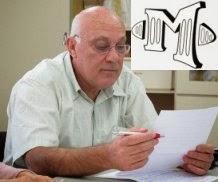Unpublished, medium-length film talks about tradition, love and religiosity.
Documentário Do que Aprendi com minhas mais Velhas (Foto: Thiago Gomes/divulgação)
The documentary Do I Learned with My Oldest, directed and produced by Fernanda Júlia Onisajé and Susan Kalik, with script by Susan Kalik and production of Modupé Producer, will be shown for the first time in Bahia, Brazil, at the Mostra Lugar de Mulher é no Cinema .
Produced through the affirmative Short 2014: Protagonism of Afro-Brazilian Filmmakers in Audiovisual Production, Ministry of Culture, the medium-length has already been shown at the 3rd Feminine Film Show (2017) in Belo Horizonte, Minas Gerais, Brazil. Also in 2017, will integrate the 11th Mostra Cinema and Human Rights, which will take place in the 26 Brazilian capitals and in the Federal District.
Synopsis What I learned from my elders is a documentary about how faith in Candomblé is transmitted from generation to generation. Nenguas, Yalorixás and Egbomis tell how they learned from their elders and how they teach their children. "The oldest one was the one that went most of the way. It is a reference of understanding and wisdom. It is a mediator between the younger, the deities and the teachings of the initiatory process. It is through the experience of these Yás that we are the youngest to learn, "explains Fernanda Júlia, who directs her first documentary and is currently theatrical director and playwright of the Afro-Brazilian Theater Center of Alagoinhas - Nata.
The documentary arises from the questioning regarding the birth of the faith in candomblé. "I've been working with candomblé for 7 years, since joining Nata. From then on I have observed the strength, love and faith of this ancient religion and how these women, the Nenguas, Yalorixás and Egbomis are the basis of the conservation and transmission of these knowledge. This gives rise to the desire to know how they learned from their elders and how they teach their young ones, "says Susan Kalik, who is also a producer and director at Modupé Produtora, a company with other projects related to Candomblé and Afro-Brazilian Ancestry.
Show - The show Lugar de Mulher is in the Cinema is held by the producers Segredo Filmes, Olho de Vidro Produções and Moara Rocha Productions and presents in its first edition short fiction, documentary, animation, experimental and hybrid, of up to 20 minutes in length, Led by women and / or women as protagonists. In this first edition, which will take place in the Sala Walter da Silveira from Saturday (8) to Tuesday, the honoree is Mônica Simões, a Bahian multimedia filmmaker and artist.
Cultura não é o que entra pelos olhos e ouvidos,
mas o que modifica o jeito de olhar e ouvir.
A cultura e o amor devem estar juntos.
Vamos compartilhar.
Culture is not what enters the eyes and ears,
but what modifies the way of looking and hearing.
--br
Cultura brasileira - Candomblé. Documentário Do que Aprendi com Minhas mais Velhas será exibido na mostra Lugar de Mulher é no Cinema.
Inédito, média-metragem fala sobre tradição, amor e religiosidade.
O documentário Do que Aprendi com Minhas mais Velhas, dirigido e produzido por Fernanda Júlia Onisajé e Susan Kalik, com roteiro de Susan Kalik e produção da Modupé Produtora, será exibido pela primeira vez na Bahia, Brasil, na Mostra Lugar de Mulher é no Cinema.
Produzido através do edital Curta afirmativo 2014: Protagonismo de Cineastas Afro-brasileiros na Produção Audiovisual, do Ministério da Cultura, o média-metragem o já foi exibido na 3ª Mostra de Cinema Feminista (2017), em Belo Horizonte, Minas Gerais, Brasil. Ainda em 2017, integrará a 11ª Mostra Cinema e Direitos Humanos, que ocorrerá nas 26 capitais brasileiras e no Distrito Federal.
Sinopse Do que aprendi com minhas mais velhas é um documentário sobre como a fé no Candomblé é transmitida de geração em geração. Nenguas, Yalorixás e Egbomis contam como aprenderam com seus mais velhos e como ensinam aos seus mais novos. “A mais velha foi aquela que percorreu maior parte do caminho. É referência de entendimento e sabedoria. É mediadora entre os mais novos, as divindades e os ensinamentos do processo iniciático. É por meio da experiência dessas Yás que nós mais novos aprendemos”, explica Fernanda Júlia, que dirige seu primeiro documentário e, atualmente, é diretora teatral e dramaturga do Núcleo Afro-Brasileiro de Teatro de Alagoinhas – Nata.
O documentário surge do questionamento em relação ao nascimento da fé no candomblé. “Trabalho com candomblé há 7 anos, desde que ingressei no Nata. A partir de então, tenho observado a força, o amor e a fé desta religião ancestral e de como essas mulheres, as Nenguas, Yalorixás e Egbomis são a base da conservação e da transmissão desses saberes. Nasce assim o desejo de saber como elas aprenderam com suas mais velhas e de como ensinam aos seus mais novos”, conta Susan Kalik, que também é produtora e diretora na Modupé Produtora, empresa com outros projetos ligados ao Candomblé e Ancestralidade Afro-brasileira.
Mostra - A mostra Lugar de Mulher é no Cinema é realizada pelas produtoras Segredo Filmes, Olho de Vidro Produções e Moara Rocha Produções e apresenta em sua primeira edição curtas de ficção, documentário, animação, experimental e híbrido, de até 20 minutos de duração, dirigidos por mulheres e/ou com mulheres como protagonistas. Nesta primeira edição, que ocorrerá na Sala Walter da Silveira de sábado (8) a até terça, a homenageada é Mônica Simões, cineasta e artista multimídia baiana.



Nenhum comentário:
Postar um comentário